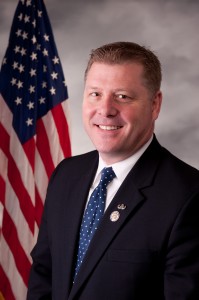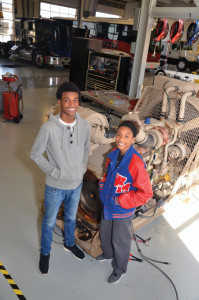By Steve Brawner
© 2016 by Steve Brawner Communications, Inc.
There’s a lot more to this debate over the proposed casino amendment than just whether or not Arkansas should have more slot machines than it already does – which is quite a lot between Oaklawn and Southland.
Issue 5 would create a constitutional amendment authorizing the building of one casino each in Washington County, Miller County and Boone County. The casinos would be required to pay the state 18% of their net and would pay 1.5% to the city where they are located and .5% to their local counties. An Arkansas Gaming Commission would regulate.
The amendment’s backers, Arkansas Wins in 2016, say Arkansas should have casinos here because they’re already just across the border elsewhere – in Mississippi, in western Oklahoma; in Caruthersville, Missouri; and in Shreveport, Louisiana. Adding three casinos in Arkansas would keep Arkansas gamblers at home and attract some out-of-staters. A lot of people think going to casinos is fun. If they’re going to gamble, eat at buffets and go to shows, they might as well do it in Arkansas, employing Arkansans, boosting tourism and paying state taxes.
Politics makes strange bedfellows, and that’s definitely true with this issue. Opposed to the effort are faith-based groups such as the Family Council along with the state’s existing gambling providers, Oaklawn and Southland, which race horses and greyhounds on a part-time basis and operate casino-like entities full-time. The Family Council doesn’t want the gambling; Oaklawn and Southland don’t want the competition.
They’ll be working in parallel but not really together. The Family Council will spread through its grassroots network of churches its message that gambling leads to social ills – addiction, divorce, etc. – without the promised economic benefits. Meanwhile, Oaklawn along with Southland’s parent corporation in August donated a total of $109,500 to the Committee to Protect Arkansas’ Values/Stop Casinos Now. In fact, they’re the only donors listed in the required campaign filing with the Arkansas Ethics Commission. That money is funding a lawsuit in the Arkansas Supreme Court to disqualify the amendment.
Four years ago, a group with a similar name and the same chairman, former Arkansas Sheriffs Association Executive Director Chuck Lange, raised more than $1 million from Southland, so that $109,500 is probably just seed money.
The Committee’s messaging so far has focused less on gambling’s ills and more on what the proposed amendment does and doesn’t do. The amendment defines gambling as whatever is legal in Arkansas’ surrounding states and in Nevada, meaning Arkansas policymakers would be handcuffed in defining terms and setting limits. It would allow sports betting and alcohol sales.
Like previous casino amendments that have either been tossed from the ballot or voted down by Arkansans, this one is backed by those who would make money off it. It would embed in the Arkansas Constitution a permanent monopoly granted to two Missouri businessmen, Bob Womack of Branson and Jim Thompson of Blue Eye, and their successors and assignees.
That means no one else could operate a casino anywhere in Arkansas except those two along with Oaklawn and Southland. Those two existing casinos are limited by law, for now, to “electronic games of skill,” such as blackjack tables with electronic “cards” rather than those dealt by humans.
So expect to hear opponents use the words “out of state” a lot, even though Arkansas’ two current gambling establishments also are owned by out-of-state entities – Oaklawn by the Cella family of St. Louis, and Southland by Buffalo-based Delaware North.
All of this very easily could become moot. The issue is now in the hands of the Arkansas Supreme Court, which is considering whether the ballot title is misleading and whether the signatures were collected improperly.
In fact, all four voter-led ballot initiatives – this, two that would legalize medical marijuana, and one that would limit judgments in medical lawsuits – are being sued for one reason or another.
Will at least one of them be disqualified? History shows that’s a pretty safe bet.

